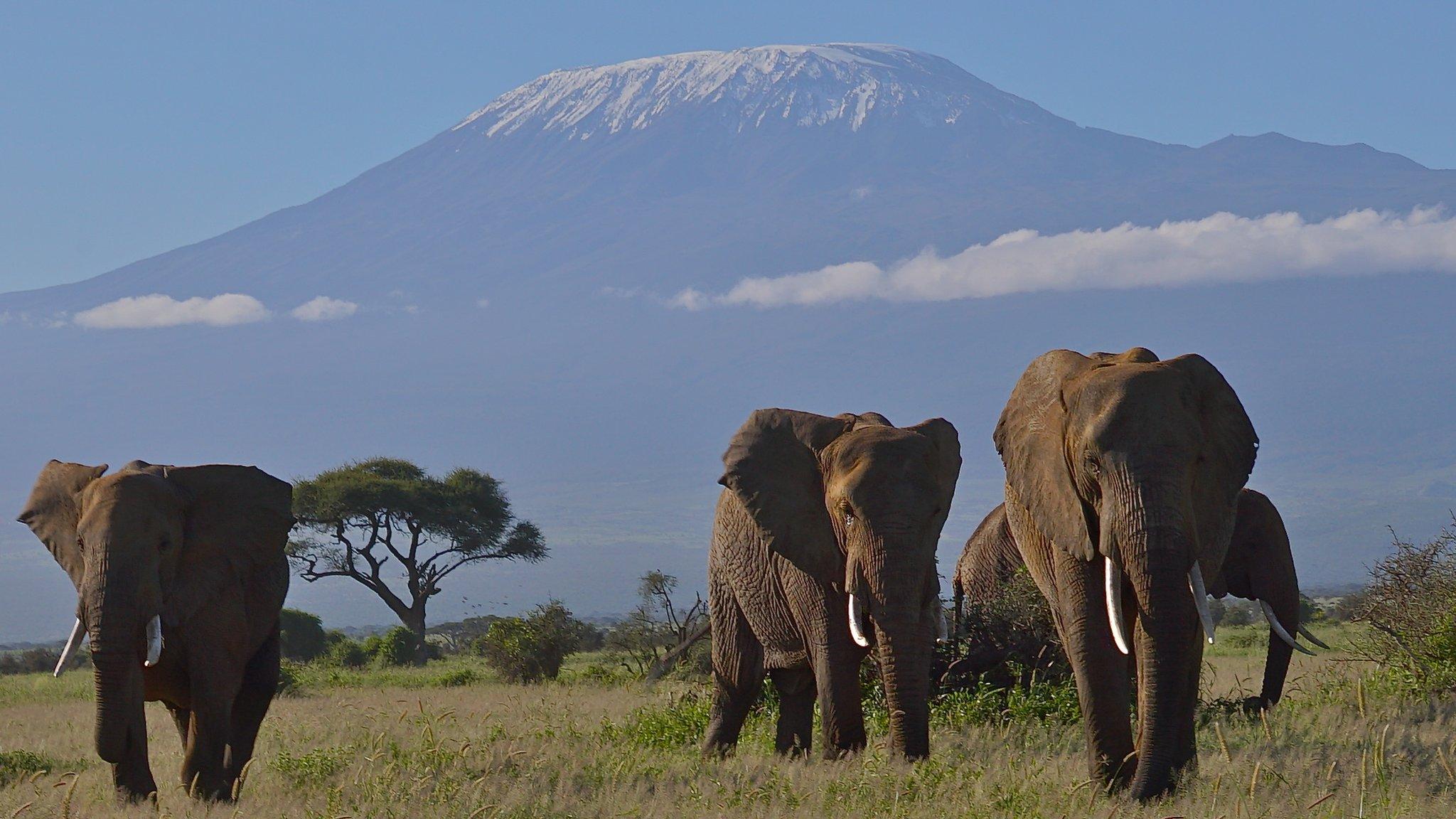Conservation: WWF call for new UK rules to protect rainforests
- Published
- comments
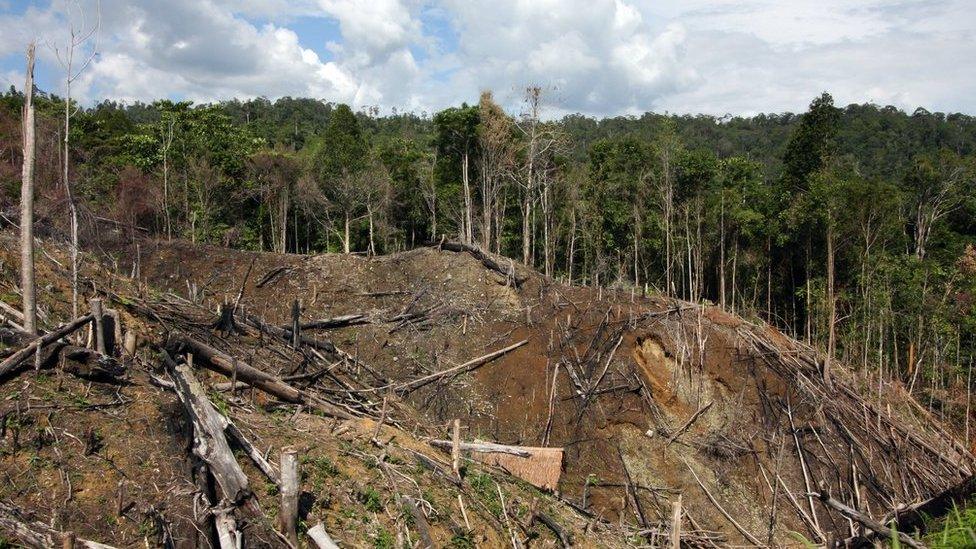
The World Wide Fund for Nature (WWF) is asking the UK government to make new rules to stop banks giving money to organisations that they say are harming the natural world.
The nature charity have written to UK banks and financial groups asking them not to give loans to, and invest in, companies whose activities affect the Brazilian and Indonesian rainforests.
The WWF say banks should do more to avoid lending money to companies involved in the farming of beef and production of palm oil, soy or cocoa, on land that was once forest.
This is bad for the environment because deforestation contributes towards climate change and destroys natural habitats that are home to thousands of species.
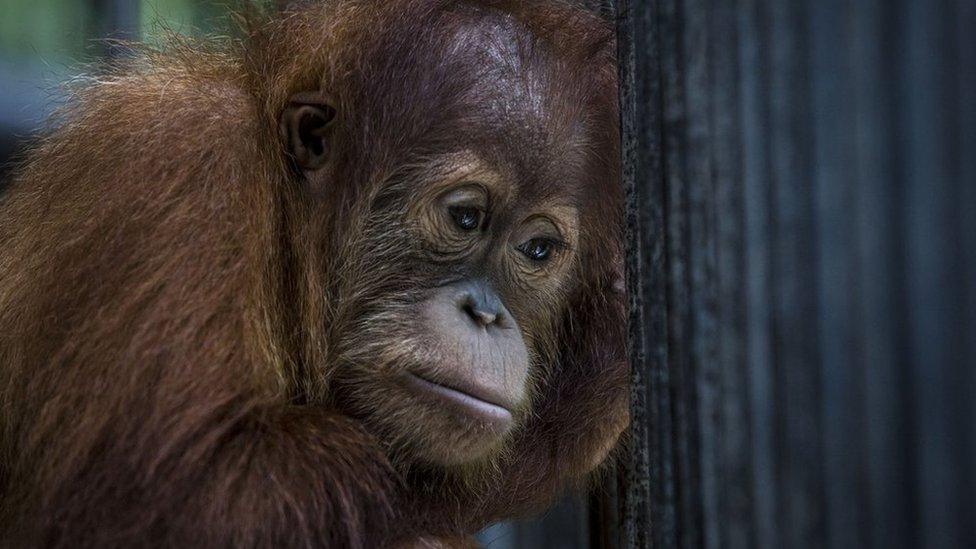
Many species are losing their natural habitats as a result of deforestation
Other activities, including timber, paper and rubber production are also contributing to the destruction of nature.
The WWF believe that around £40 billion in funding has been given to companies that threaten rainforests.
"Deforestation is one of the biggest threats to our climate, to wildlife and to the local people who rely on forests for their livelihoods," said Karen Ellis, director of sustainable economy at WWF-UK.
"Every hectare of rainforest that is destroyed makes it harder to limit global warming to below the 1.5C target set out in the 2015 Paris Climate Agreement.
"Alarmingly, UK investments in forest-risk commodities have not significantly reduced since then."
Deforestation is when forests and trees are cut down to clear the land to use it for something else.
This is because forests are burned to clear areas where people can grow oil palms, cocoa beans, or soybeans - even if it is illegal.
Burning forests like this destroys the places where plants and wildlife live, meaning the area has less biodiversity.
Many species including; orangutans, rhinos, elephants and tigers have been affected.
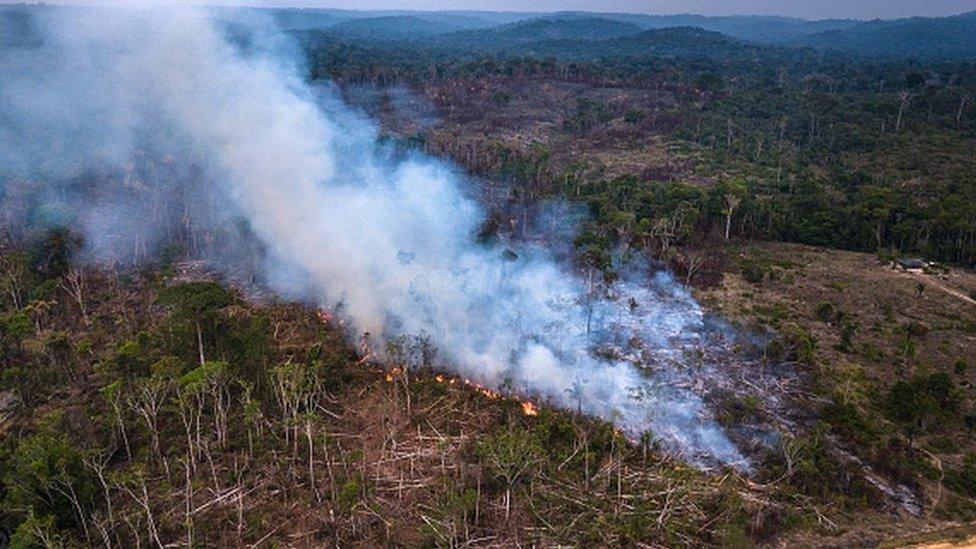
Fires are lit to help clear the rainforest then ash from the burnt trees is then used as nutrients for new crops
The UK currently has no laws that require products to come from sustainable sources.
This means that companies can choose for themselves where they get their supplies from, which the WWF says "leaves the UK's supply chains exposed to deforestation".
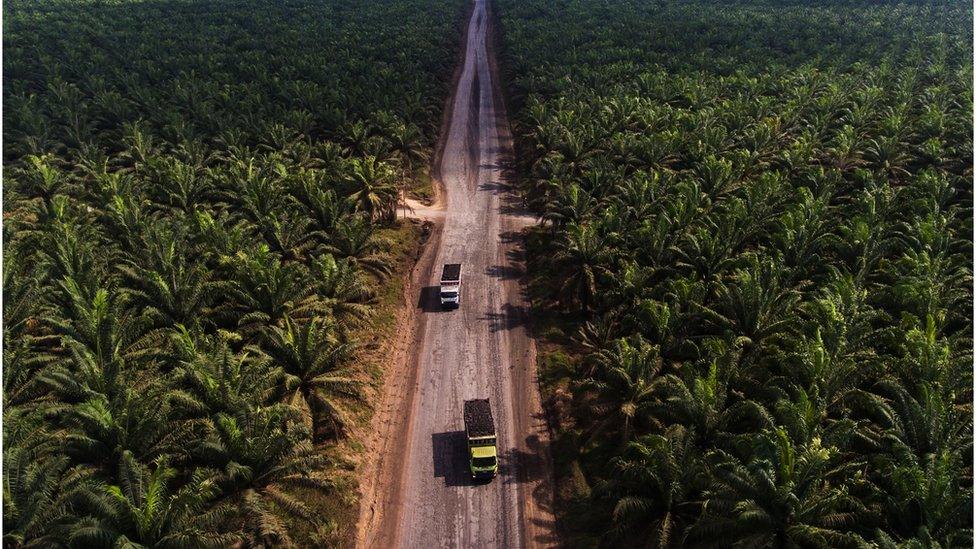
Palm oil is kind of vegetable oil made from the fruits of trees called oil palms
Trees and plants take in carbon dioxide and release oxygen. When they're cut down, burned or left to rot, the carbon dioxide they store is released into the air and this contributes to something called global warming.
This happens when greenhouse gases trap heat from the Sun, causing the Earth's surface to get hotter.
The charity have also said that for the UK to meet its net zero target by 2050, the Government needs to pass an 'Environment Bill' that makes sure that no deforestation is being caused by money provided to companies from within the UK.
They said: "The Environment Bill will require companies trading in palm oil, soy, and other forest-risk commodities to undertake due diligence checks.
"This must equally apply to firms that finance forest-risk commodities, as voluntary measures clearly aren't giving forests the protection they urgently need."
The Treasury - the government office in charge of UK spending - said: "We are committed to the UK being the best place in the world for green and sustainable investment and were the first country in the world to commit to fully mandatory reporting by businesses across the economy on the financial risks posed by climate change.
"Our new integrated sustainability disclosure requirements go further by requiring companies, pension schemes, financial services firms and their investment products to report on the impact they are having on the climate and environment, helping to ensure investors have the information they need to drive positive environmental impact."
- Published20 January 2020
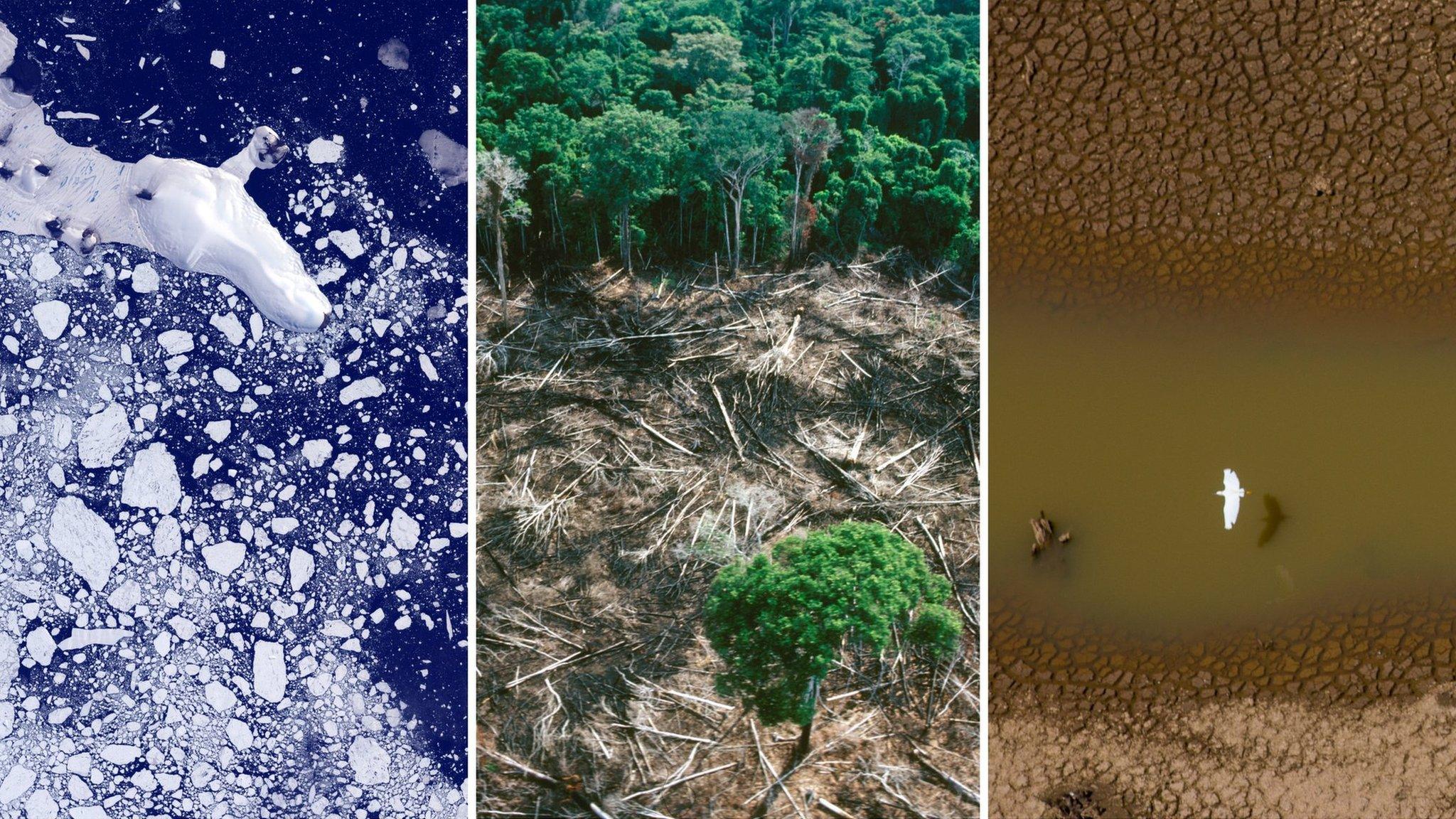
- Published31 October 2021
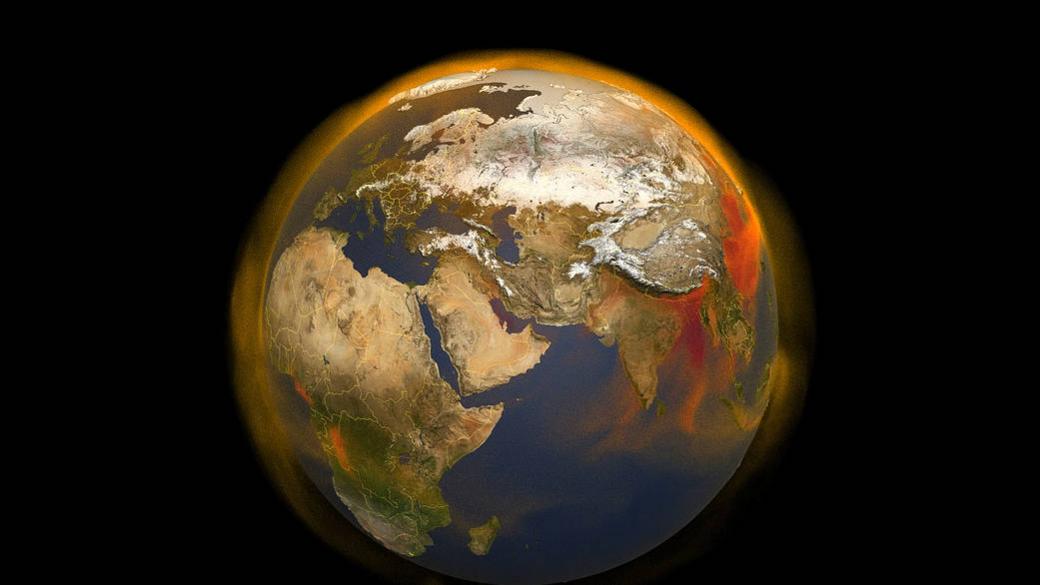
- Published6 September 2020
